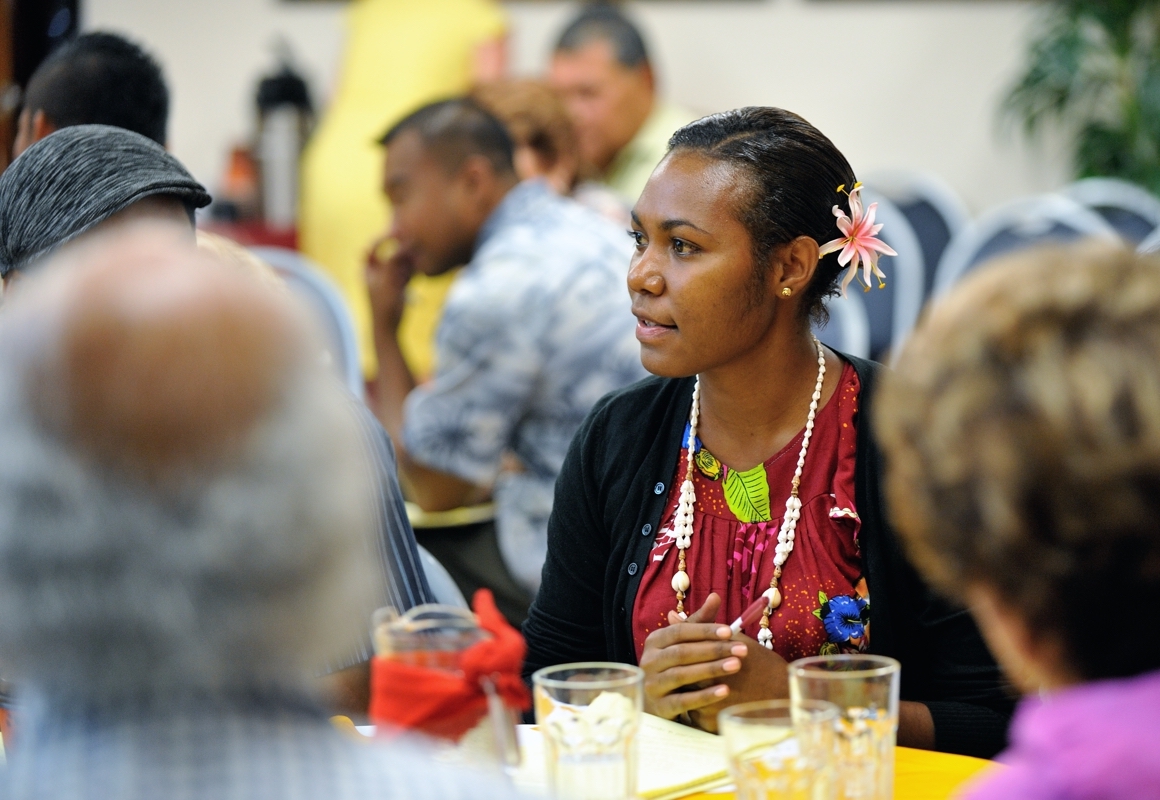Christian Mentoring: Its Significance and Implications for Leadership
WCIU Journal: Leadership Topic
July 6, 2017
by John.Sheneni
The Practice of Mentoring in Nigeria
In the Bassa society, one of the tribes of central Nigeria, parents use music/songs, proverbs, wise sayings, folktales, and riddles for character development of the young ones. The following story was told to me by my grandfather:
In a distant past, cats and hawks were once friends. They lived in the same village, inter-married, and hunted for food together. There were to notable Cat and Hawk friends. One day, they went hunting. In the bush, Cat saw a dead animal a short distance away from where they were resting. Just then the Hawk also saw it. Before the Cat could reach for the meat, Hawk dived swiftly and picked it up and went and perched on a nearby tree. Cat became very annoyed, and thought of what to do. An idea came to him that he should cause Hawk to be proud. Cat went near the tree where Hawk was perched and said to him, “I heard that you sing very well. Please sing for me to hear so that I can also bear witness.” Hawk was puffed up with pride and very excited as he opened his mouth to sing. The meat that was in his mouth dropped down where Cat picked it up and ran away. Hawk realized that “pride begets foolishness.”
This story is an example of mentoring younger person in character development. This concept of mentoring, through practice in the traditional and family settings, can also be practiced in the Christian setting. The example of Jesus’ life during His earthly ministry cannot be over-emphasized. He chose twelve men with whom He shared His life by way of words and actions so that they could become like Him even after He was gone.
The problem in Nigeria is that leaders seem to have little concern for mentorship. During the course of their service in their organizations, leaders often have not developed others to become leaders, and when they leave, there is a problem of getting leaders to replace them.
Why is it that in Christian settings in Nigeria, the leaders prefer to lead on for “life” even after they have lapsed from usefulness? Then when they eventually leave, their organizations are stranded, as very few or no people are eligible to take on the mantle of leadership. This is a very grave problem in Nigerian Christian leadership today.
History and Concept of Mentoring
The concept of mentoring has significant historical roots. The notion of mentoring dates back to classical Greek mythology. In Homer’s epic poem, the Odyssey, as Odysseus ventured out to fight the Trojan war, he entrusted his home and his son, Telemachus, to an older, wiser, and more experienced person named Mentor. For the following ten years, this guardian served as teacher, advisor, surrogate father, and friend to Telemachus. Upon his return, Odysseus discovers that his son had matured in all ramifications, courtesy of the wise tutelage of Mentor (Murray and Owen 1991, 6-7).
It would seem from this story that mentoring has something to do with the maturation process, enabling people to develop their potential.
Biblical Mentoring
Although the word, “mentoring,” is not in the Bible, the concept is found in both the Old and New Testaments.
Jethro to Moses
In the book of Exodus, Jethro advised his son-in-law, Moses, in these terms: “What you are doing is not good. … Listen now to me and I will give you some advice, and may God be with you” (Exodus 18:17ff). Mentoring includes giving good advice. Jethro advised Moses to delegate his duties so that the people of God could have peace in their hearts and go home satisfied.
Moses to Joshua
Before he died, Moses gave clear guidelines to Joshua on how to lead God’s people: “The Lord himself goes before you and will be with you; he will never leave you nor forsake you. Do not be afraid; do not be discouraged” (Deut. 31:8). In this passage, mentoring is the process of preparation of emerging leaders to take over leadership. Christian leaders are not necessarily to be admired on the basis of their business administration skills, but on the basis of their capacity to produce their successor.
David to Solomon
Before he died, David also gave instruction to his successor, his son Solomon, on how he should lead Israel. “Be strong, show yourself a man, and observe what the Lord your God requires. … Walk in obedience to him … so that you may prosper in all you do (1 Kings 2:1-4).
Elijah to Elisha
Elijah and Elisha were in close companionship until the day when Elijah was taken by God to heaven. Elisha asked for a double inheritance so he could be a good successor of Elijah and carry on Elijah’s ministry
Jesus to His Disciples
In the New Testament, Jesus spent three years mentoring the twelve disciples. He told his disciples, “The Son can do … only what he sees his Father doing. For the Father loves the Son and shows him all he does. Yes, and he will show him even greater works than these, so that you will be amazed” (John 5:19, 20). Later Jesus told his disciples, “Whoever believes in me will do the works I have been doing, and they will do even greater things than these, because I am going to the Father” (John 14:12). After equipping them, Jesus delegated to his disciples the responsibility to cast out demons, to heal those who were sick, and to make more disciples.
Paul to the Churches
The apostle Paul spelled out mentoring as his leadership model very simply: “Whatever you have learned or received or heard from me, or seen in me—put it into practice. And the God of peace will be with you” (Philippians 4:9). He confirmed this by saying, “Follow my example, as I follow the example of Christ” (1 Cor. 11:1). In other words he mentored the Christians of Corinth and Philippi by telling them, “let me be your model.” Example and modeling are the tools for developing emerging leaders and transmitting good leadership from one generation to the next.
Paul to Timothy
“You then, my son, be strong in the grace that is in Christ Jesus. And the things you have heard me say in the presence of many witnesses entrust to reliable people who will also be qualified to teach others” (2 Tim. 2:1, 2). This passage illustrates the importance of giving instruction and endeavoring to equip and nurture leaders who will be able to in turn minister effectively to others. Paul mentored Timothy by offering special time to teach him.
Leadership Development through Mentoring
Mentoring is tasking, time-consuming, and energy consuming, but it is a powerful tool for leadership development. Leadership and spiritual growth are natural by-products of one-to-one discipling, equipping, and mentoring relationships.
Great men and women recognize that it is a leader’s obligation to model what they expect from their followers. The mentoring relationship requires a commitment and often sacrifice by both mentor and mentoree. Unless both parties are committed to making it work, the relationship will not grow and develop into full fruition. One of the contributing factors to the lack of mentoring practice is the lack of humility in both mentor and mentoree. But good mentoring relationships produce joy and fulfillment as life-long virtues and values are being built into someone’s life. Although the mentor has a role to play in the process, God causes the change and growth in the mentoree.
Recommendations
For mentoring to have significance, both mentors and proteges must have good listening and communication skills.
1. Value your mentoree’s opinions and let your mentoree know that he or she is being taken seriously.
2. Be open and committed to the relationship.
3. Be willing to sacrifice self for others.
4. Work together to build trust.
5. Be willing to meet when needed and keep the door open as often as possible.
6. Respect each others’ personal views and values.
7. Show kindness and love.
8. Integrity is a crucial part of the mentoring relationship. Without it, the relationship will be merely a veneer with no substance.
9. Be flexible. There is not one program that fits all.
10. The mentor should prayerfully and carefully select those who are willing to learn and be accountable to him or her.
11. The organization needs to have training policies and send those involved in mentoring relationships to workshops and conferences as a reward for service. Training is a form of recognition and also serves to keep the mentor and mentoree motivated, committed, and performing the quality of service expected by the organization.
Reference
Murray, Margo, and Marna A. Owen. 1991. Beyond the myths and magic of mentoring: How to facilitate an effective mentoring program. San Francisco: Jossey Bass.
John Sheneni has an MA in International Development from William Carey International University and is working toward a PhD with WCIU. He teaches in the Jos Baptist Pastor’s College in Nigeria.


